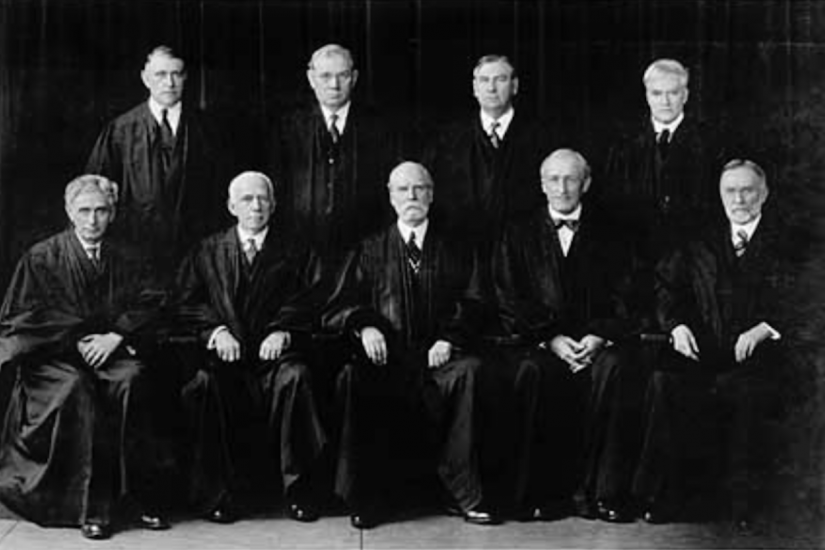A Republican president presides over a historic economic collapse, allowing his Democratic opponent to win the White House in a walk. Once inaugurated, the new president signs into law a mix of emergency legislation intended to goose the economy and long-term reforms to benefit the least fortunate. The new president is soon besieged by a strident opposition, backed by some of the wealthiest people in the nation, who insist that our Constitution is being sacrificed on the altar of socialism. Before long, the president’s signature accomplishments are threatened by conservatives on the Supreme Court.
I’m speaking, of course, about the presidency of Franklin Delano Roosevelt.
If you thought I was speaking about a more recent president, the truth is that FDR’s domestic achievements faced far greater threats from the Supreme Court than President Barack Obama’s. Sadly, however, there are early signs that today’s court may be headed to a similar, deeply partisan standoff with the president of the United States.
In his first five years in office, Roosevelt squared off against a Supreme Court with little patience for the New Deal—or for many other efforts to protect the vulnerable. As I lay out in my book, Injustices: The Supreme Court’s History of Comforting the Comfortable and Afflicting the Afflicted, these justices were committed to a misreading of the Constitution that, among other outrages, doomed children as young as 6 to lives working in cotton mills and coal mines.
Roosevelt’s plan to teach humility to these justices became known as his “court-packing” plan. It is widely viewed as one of his greatest blunders. The plan, which called for up to six new justices to be added to the Supreme Court, emboldened Roosevelt’s foes and persuaded many lawmakers to become his foes. Sen. Hiram Johnson, a progressive Republican who supported the New Deal, claimed that the plan placed the nation on the “road to Fascism.” Rep. Hatton Sumners, the Democratic chair of the House Judiciary Committee, turned to a group of his colleagues after learning of the plan and announced: “Boys, here’s where I cash in my chips.” A Gallup poll showed 53 percent of the nation opposed to it.
This opposition is understandable, as an independent judiciary is a precious thing. The courts are the one branch of government that anyone, whether rich or poor, can approach seeking relief and have their grievances considered by powerful government officials. At their best, judges can stand up to discrimination and protect each American’s most basic rights. Such independence is not something to be traded away lightly.
